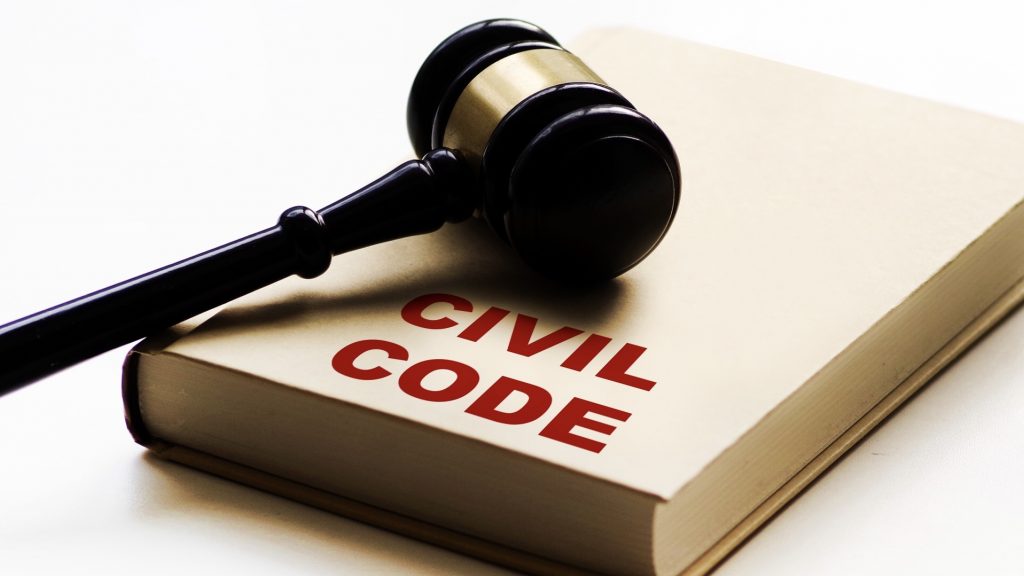There is every reason to doubt the intent of the 22nd Law Commission of India which has sought views from public and religious organisations about the implementation of the controversial Uniform Civil Code (UCC) that aims at framing one law governing marriages of all communities and religious groups dispensing with their respective personal laws. Similar attempts were made in the past too when it became the rallying point of right-wing Hindoo and fundamentalist outfits to drive a wedge between the majority Hindoo and minority Moslem population for electoral gains. The whole nation was then agitated as the move triggered panic among the minority population over scrapping of their personal laws and undue interference with the age-old convention and faith regarding their system of marriage.
The 21st Law Commission had earlier examined the UCC and solicited the views of all stakeholders through its appeal along with a questionnaire in 2016. It made further public appeals in 2018 and released a consultation paper in the same year on “Reform of Family” in which it cogently argued and concluded that formulation of UCC was “neither necessary nor desirable at this stage.” In the 185-paper, the Commission, led by former Supreme Court judge Justice BS Chaushanin, emphasised that secularism could not contradict the plurality prevailing in the country. It categorically stated cultural diversity cannot be compromised to the extent that the urge for uniformity itself becomes a reason for threat to the territorial integrity of the nation. It made its point crystal clear without any ambivalence that a unified nation did not necessarily need to have “uniformity” and that efforts have to be made to reconcile the country’s diversity with universal and indisputable arguments on human rights. Differences, it clarified, did not always imply discrimination in a robust democracy. In the same breath, it did not rule out certain uniform measures to be accepted by all religions on marriage and divorce. That was fair enough, given the fact that laws are not immutable and can be changed in the light of changing social conditions and reality.
The 22nd Law Commission’s sudden realisation that fresh attempts need to be made to ascertain public views on the UCC as three years have passed since the previous Commission’s verdict is, indeed, suspect. In the first place, it is not clear wherefrom the Commission has got the idea that this is the right time for reconsidering the crucial issue fraught with dangers of communal conflagration.
This is all the more dubious since only in February, then Union Law Minister Kiren Rijiju told the Rajya Sabha that the government had not taken any decision “as of now” on the implementation of the UCC in the country. He further clarified that the matter might be taken up by the 22nd Law Commission for its consideration. It could be surmised from his statement that even though there was no immediate need to rake up the vexed question, it could be revived in future to suit the ruling BJP’s interests.
The question is – what happened in the intervening four months that led to the Commission’s decision not to waste any more time and take up this most sensitive issue with the potential to stoke communal passion.
The answer may be that when Rijiju dismissed the immediate possibility of taking up the matter, the BJP-government, led by Narendra Modi, was facing little threat from the Congress and the Opposition for the 2024 Lok Sabha election at that time. But, thereafter the unthinkable happened in the form of an ignominious defeat of the BJP at the hands of the Congress in the Karnataka Assembly elections. That not only ended the Congress’ drought of electoral success since the Prime Minister occupied the centre-stage of Indian politics, but exploded the carefully crafted myth of “Modi hai toh mumkin hai” (with Modi around, anything is possible). The BJP seems to have read the writings on the wall that no one is invincible. It could not pass off the debacle as a reflection of the party’s state leadership since Modi himself addressed a record number of election rallies and spent over a week campaigning in Karnataka.
Under the circumstances, the BJP leadership appears to be desperately looking for one tool after another for its divisive electoral politics. The UCC is one such weapon that the saffron brigade is trying to fish out of its armoury.
